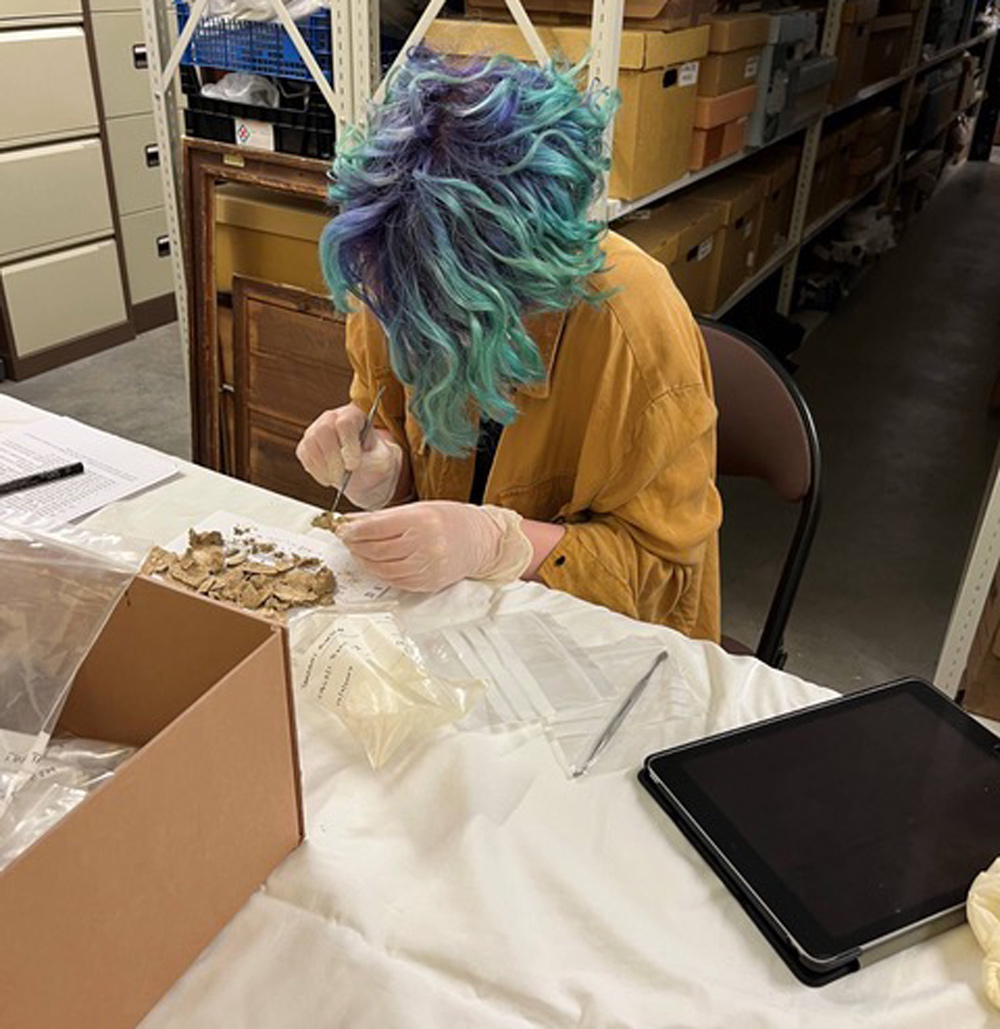The Museum of East Dorset is collaborating with the Francis Crick Institute in a nationwide research project.
Funded by the Wellcome Foundation, the project seeks to establish the whole genome history and evolution in 1,000 ancient people from Great Britain, in order to aid medical research. It will also give the museum new information and fresh insights into people from the past.
Ancient DNA will be analysed from the skeletal remains of people who lived thousands of years ago in and around Tarrant Hinton, Dorset.
Remains of these individuals – thought to be members of the Celtic tribe of Durotriges who lived in Britain prior to the Roman invasion – were found by excavators from Wimborne Archaeological Group between 1968 and 1984. The area was occupied from the Bronze Age (2500 BC to 800 BC) through to the Iron Age (800 BC to AD 43) into Romano-British times up to AD 388.
Tiny samples have been taken from 17 burials for DNA analysis. For a sample there are three parts of the skull that can be used: the tiny bones from inside the ear commonly known as the hammer, anvil and stirrup; a piece of the temporal bone from the cranium; or a well-preserved tooth.
The Museum of East Dorset has consulted closely with Dr Simon Mays of Historic England and Professor Alistair Pike from the University of Southampton, who in 2019 were involved with analysis of the museum’s Iron Age TB skeleton, the earliest known case of TB in Britain, also from the Tarrant Hinton site. This suggested a high probability the man spent his early childhood in an area of Carboniferous Limestone to the west of Britain – possibly in south or west Ireland, on the Atlantic coast of southwest France or the Cantabrian Mountains of Northern Spain
Now, it may be possible to find out more about his specific strain of TB, which differs depending on geography.
The DNA analysis may take up to 12 months, Museum director Chezzie Hollow said the results would be awaited with great interest and any significant findings would be shared with the public.
Pontus Skoglund, head of the Francis Crick Institute’s Ancient Genomics Laboratory, said: “As part of this project, the unique heritage collections of the Museum of East Dorset will not only shed new light on archaeological questions but also aid our understanding of genetic health and disease through our larger integration with the medical resources of the UK biobank.”

Related Articles
CrimeEnvironmentNews July 26, 20240
Sally Davidson, from Dorset, among Just Stop Oil protestors behind bars over protests
A DORSET woman is among Just Stop Oil (JSO) protestors who have been remanded…
CoastalNews July 26, 20240
Family’s tribute to missing diver Emily Sherwin, 20, after Old Harry Rocks tragedy
A 20-YEAR-OLD diver is missing after failing to resurface off Old Harry Rocks on…
NewsSport July 25, 20240
Paris 2024 Olympics: Athletes to keep an eye on in Dorset and Somerset
ATHLETES across Somerset and Dorset are in Paris this week representing Team GB…







Leave a Reply